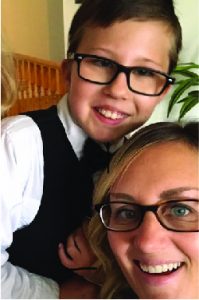
Sophie & Mandy Young
Sophie Young, Nine-year-old self-advocate, Living with Prader-Willi Syndrome and Autism Spectrum Disorder
Mandy Young, Provincial Family Support Coordinator, Family Support Institute of BC; President, BC Prader-Willi Syndrome Association, North Vancouver, BC
Opening Remarks
Sophie: As a bright 9 year old with strong ideas and goals, Sophie advocates for herself whenever possible. When adults don’t hear her voice her mother steps in to support. Sophie loves music (and has seen P!nk in concert twice), baseball, soccer, and horse riding (since age 3) as recreational activities. She inspires to have her own apartment, get a dog, become a scientist, and live life full.
Mandy: As a mother of a nine-year-old with a rare genetic disorder and Autism, she has first-hand experience managing the complex care of an individual with specialized needs. Mandy works extremely hard at keeping person-centered planning front and foremost when helping Sophie live her best life, intertwining health and wellbeing. Mandy also facilitates a support group for families with children aged 0-12 with specialized needs and P.I.E-Partners for Inclusive Education which brings together administration, Teachers, EA’s and Parents to engage in inclusive educations from a place of “power with” and “nothing about us without us”.

Scott Jessey
Closing Performance
Scotty has Warkany’s Syndrome (Trisomy 8 Mosaic) and high-functioning autism but his musical ability allowed him to excel in high school band (including trips to Expo 86 & Disneyland) and he graduated with both a Music Award and a High School Diploma. He was admitted to a college music program (which he was unable to complete due to the absence of academic supports) so he then moved into supported employment – including 10 years @ Company’s Coming during which time he lived in a group home. The highlight of Scotty’s year has always been summer camps – the first ones for Therapeutic Riding (where he won several medals including Special Olympics dressage) and then a wonderful camp with zip-lining, canoeing & campfires (and no age limit!). Since moving to BC, he has attended day programs on Salt Spring Island and in Parksville and summer camps in Squamish (Easter Seals) and Mission (Camp Zajac) – both of which were kind enough to grant him an “age exemption”

Courtney Harrop
Aboriginal Supported Child Development Program, Tla’amin, Powell River, BC
Tiwšamstawtšt (We will Teach Each Other)
Courtney lives, works and plays in Powell River, BC, located in the beautiful territories of the Tla’amin Nation. Courtney has a diploma in Leadership and Disability Studies from Vancouver Island University. She is passionate about children, communities, trauma informed practice, social justice, decolonization and reconciliation. She is currently working in the Aboriginal Supported Child Development program in Tla’amin coordinating supports, programs and services for children with developmental delays, and intellectual/developmental disabilities, and their families. Courtney is also a volunteer firefighter and first responder with the Tla’amin Nation Fire Department, coordinated “Understanding Through the Lens of Trauma”, a two day trauma informed conference hosted in the Tla’amin Nation in 2018.

Ross Chilton
MA, CEO, Community Living BC, New Westminster, BC
Reimaging Community Inclusion in the Midst of a Global Pandemic
Ross is a long-time leader in British Columbia’s community living sector and brings extensive experience advancing inclusion in social service agencies and on sector boards.
From 2007 until joining CLBC in 2019, Ross served as CEO of Community Living Society (CLS), which provides services to individuals with developmental disabilities and families across Metro Vancouver and the Fraser Valley. At CLS, he helped expand employment and support options, and formed the Community Living Housing Society to support innovative, inclusive housing solutions. Ross has previously served on several boards including the Family Support Institute, the BC Non-Profit Housing Association, the BC CEO Network and Steps Forward.
Ross holds a Master’s degree in Counselling Psychology from the University of British Columbia and has worked as a counsellor and vice president for the Interlock Employee Assistance Program. Ross is also the parent of an adult son with developmental disabilities.

Alison Gerlach
MSc, PhD, Assistant Professor, School of Child & Youth Care, Faculty of Human and Social Development, The University of Victoria, Victoria, BC
Disrupting the Narrative of ‘Hard to Reach Indigenous Families’ – Advancing Trauma- and Violence-Informed Systems Change in Early Child Development and Intervention in British Columbia
Dr. Alison Gerlach is an Assistant Professor in the School of Child & Youth Care in the Faculty of Human and Social Development at the University of Victoria. Alison’s research aims to explore and inform how the organization and provision of pediatric and early child development and intervention programs and services can be equity-oriented; that is how disability services for children can be inclusive of and responsive to families whose lived experiences including marginalization and structural violence. Her research draws on 25 years of providing occupational therapy with differently-abled children in diverse community and family contexts, and in partnership with Indigenous colleagues, organizations and First Nations in British Columbia. Alison is committed to community-based participatory research that engages with communities, organizations, families, and children as research partners.
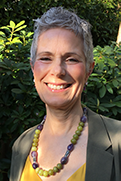
Jane Hailey
MD, Clinical Associate Professor and Consultant Pediatrician, Faculty of Medicine, University of British Columbia, Vancouver, BC
The Efficacy of Medical Cannabis as an Intervention for Children With Developmental and Neurological Disorders: Raising Awareness With Health Professionals and Educators
Dr. Jane Hailey is currently a Pediatrician in private practice and a Clinical Associate Professor at the University of British Columbia. Born in Toronto, she attended Stanford University in California, and the University of California at Berkeley, where she studied psychology and earned a teaching credential.
After several years of teaching, she moved to England for premedical studies and then attended medical school at the University of Cambridge. After qualifying as a physician, she returned to Canada to complete her Pediatric residency at BC Children’s Hospital in Vancouver, spending her last year as Chief Resident in Pediatrics. From 1992 – 2014, she was a member of a large group practice, and worked as a Consultant Pediatrician with children of all ages – from newborns to adolescents. She now works in her solo office, where she sees patients by referral.
She has been an examiner in Pediatrics for the Royal College of Physicians and Surgeons of Canada. She has written for Pediatric Notes, a North American weekly newsletter for the Pediatric community. She has also written and narrated a regular medical column on CBC AM RADIO, discussing a wide variety of topics in general medicine. In 2017, she began prescribing Medicinal Cannabis as part of her Pediatric Practice.

Nan Stephens
EdD, Assistant Professor, School of Education, Thompson Rivers University, Kamloops, BC
The Efficacy of Medical Cannabis as an Intervention for Children With Developmental and Neurological Disorders: Raising Awareness With Health Professionals and Educators
Dr. Nan Stevens enjoyed a fifteen-year teaching career working with marginalized populations, including street-entrenched youth and adults, within inner city schools of Toronto and Vancouver, Canada.
Presently, as a teacher educator, Nan brings her experience in alternate education to inform pre-service and in-service teachers about diversity and social justice. When Nan’s first son was born with a severe developmental disability, her lived experiences as the primary caregiver steered the course of her career. She has focused her life work on research, teaching, and advocacy, specifically, advancing innovative practices for educators, designing personalized programming for a high quality of life for self-advocates, and serving families in need whose children live with diverse needs. Nan’s identities are varied and numerous: mother of a child with high needs, teacher educator, scholar, community advocate, and writer. This unique combination has established her as a change agent on local, provincial, national and international stages.
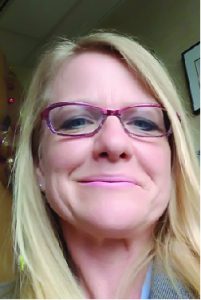
Floriann Fehr
PhD, Assistant Professor, School of Nursing, Thompson Rivers University, Kamloops, BC
The Efficacy of Medical Cannabis as an Intervention for Children With Developmental and Neurological Disorders: Raising Awareness With Health Professionals and Educators
Dr. Florriann Fehr is an Assistant Professor with a maternity and child health focus, in the School of Nursing at Thompson Rivers University, British Columbia, Canada. She is an advocate for the improvement of healthcare for pediatric families in crisis. Her research background includes conducting interviews regarding lived experience phenomenon.
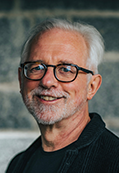
Kenneth Rockwood
MD, FRCPC, FRCP, Professor of Medicine (Geriatric Medicine & Neurology); Kathryn Allen Weldon Professor of Alzheimer Research, Dalhousie University, Halifax, NS
Ageing and Dementia in People Living With Developmental Disability
Kenneth Rockwood is Professor of Medicine (Geriatric Medicine & Neurology) and the Kathryn Allen Weldon Professor of Alzheimer Research at Dalhousie University. A leading authority on frailty, he has key roles on numerous studies in Canada and elsewhere. Ken received his MD from Memorial University in St. John’s, NL, completed training in Internal Medicine at the University of Alberta, and in Geriatric Medicine from Dalhousie University.

Tim Oberlander
MD, FRCPC, Investigator, BC Children’s Hospital; Professor, Division of Developmental Pediatrics, Department of Pediatrics, University of British Columbia; Developmental Pediatrician & Attending Physician, Complex Pain Service, BC Children’s Hospital and BC Women’s Hospital & Health Centre, Vancouver, BC
Pain in Children and Youth With Developmental Disabilities: Why Do Things Go Wrong Even When You Are Doing Everything Right
Dr. Tim Oberlander is a Clinician-Scientist whose work “bridges” developmental neurosciences and community child health. As a Clinician, he is a Developmental Pediatrician with the Child Development and Rehabilitation Program and is the medical lead for the Complex Pain Service at BC Children’s Hospital. He has particular expertise in managing persistent pain in children with developmental disabilities. As a researcher, Dr Oberlander’s work focuses on understanding how early life experiences shapes thinking, memory, attention and stress/pain during childhood.
As both a clinician and researcher his work is guided by an understanding that children are capable of a remarkable capacity for both brain plasticity and recovery—namely, vulnerability as well as resiliency and his work focuses on figuring out how and why this happens.
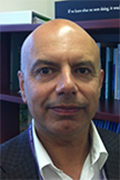
Barry Issacs
PhD, Researcher; Director, Research, Evaluation and Education, Surrey Place, Toronto, ON
The Effects of COVID-19 and Physical Distancing Measures on People with Developmental Disabilities and Those Who Support Them: Perspective of Frontline Staff and Management
Barry Issacs has been involved in research and the evaluation of health and social services for people developmental disabilities and their families since 1992. He received his PhD from York University in 2004. His current research and evaluation interests include family quality of life, homelessness and developmental disabilities, and use of individualized funding.
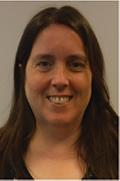
Janet Vogt
PhD, Senior Research Associate, Manager, Research, Evaluation and Education, Surrey Place, Toronto, ON
The Effects of COVID-19 and Physical Distancing Measures on People with Developmental Disabilities and Those Who Support Them: Perspective of Frontline Staff and Management
Janet has contributed to research in the fields of nutritional intervention, household food insecurity, and developmental disabilities. She also holds a graduate degree in bioethics. Working in the field of developmental disabilities since the early 1990s, Janet’s most recent focus has been on the development of tools to facilitate healthcare access for individuals with developmental disabilities and their caregivers.
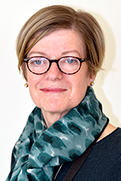
Maria Huijbregts
PT, PhD, Director, Knowledge Building, Family Service Toronto, Toronto, ON
The Effects of COVID-19 and Physical Distancing Measures on People with Developmental Disabilities and Those Who Support Them: Perspective of Frontline Staff and Management
Maria is responsible for research, evaluation, strategic planning and student coordination at Family Service Toronto. She has a wide range of practice and research/evaluation expertise, including participatory practice-based research in health care and social service settings. She has conducted quantitative, qualitative and mixed methods studies, involving vulnerable populations, such as individuals with developmental disabilities, family violence, people with stroke and a wide range of caregivers. She also has an appointment at the University of Toronto in the Department of Physical Therapy. Her main goal for her work is ensuring a strong understanding of the needs of our clients and participants and supporting evidence informed work.
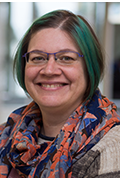
Jennifer Baumbusch
PhD, RN, Associate Professor; CIHR Chair in Sex & Gender Science, University of British Columbia,
Vancouver, BC
Lessons Lost? Healthcare Delivery for People with Intellectual and Developmental Disabilities during the COVID-19 Pandemic
Dr. Baumbusch is the Primary Lead for the Health and Well-being of Individuals with Intellectual and Developmental Disabilities and their Families across the Life-Course Research Stream with the Canadian Institute for Inclusion and Citizenship. Her research aims to inform ethical and equitable policies and practices that support health and well-being across the life-course. Jennifer teaches about aging and health services in Disability and Justice, an interdisciplinary undergraduate course at UBC.